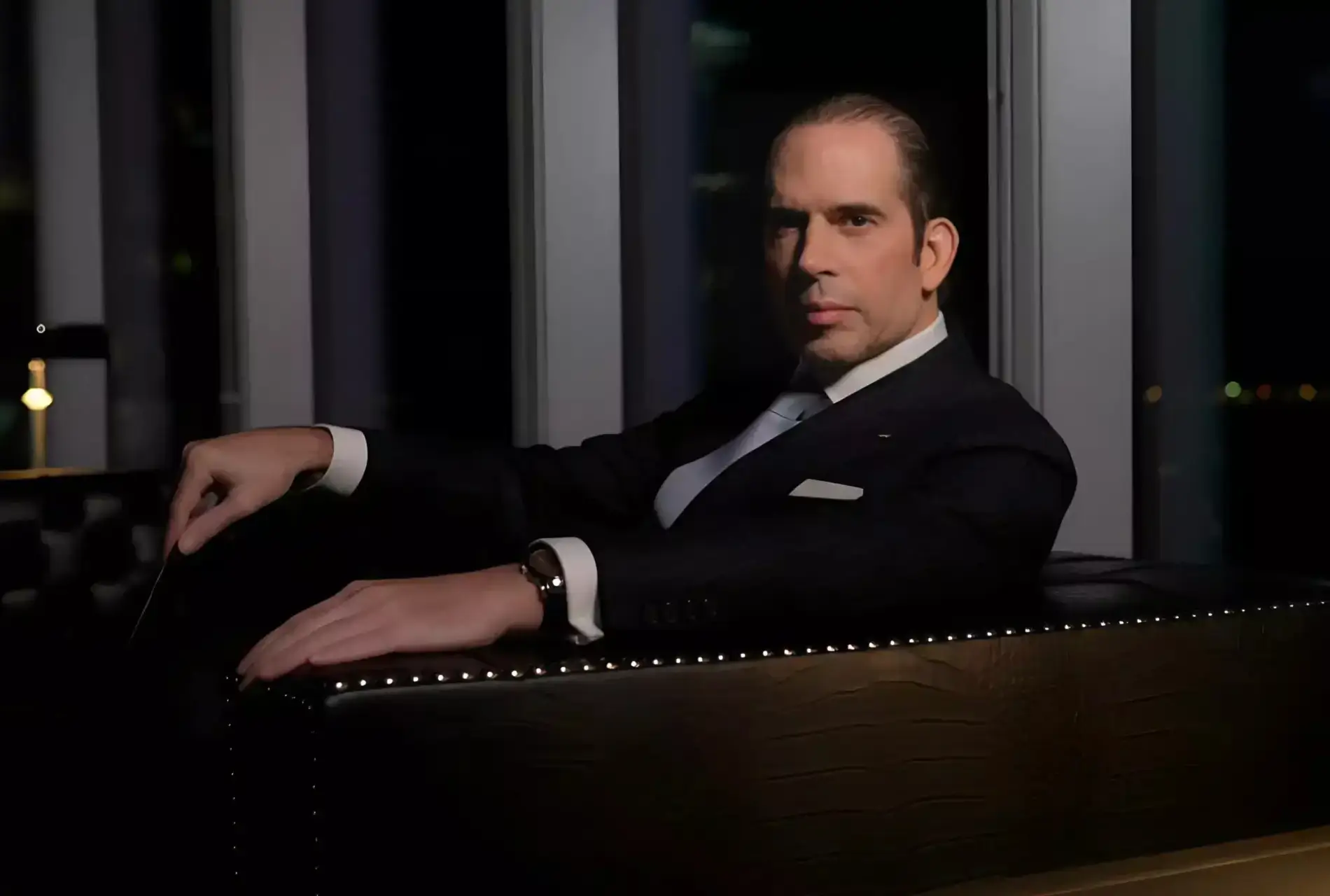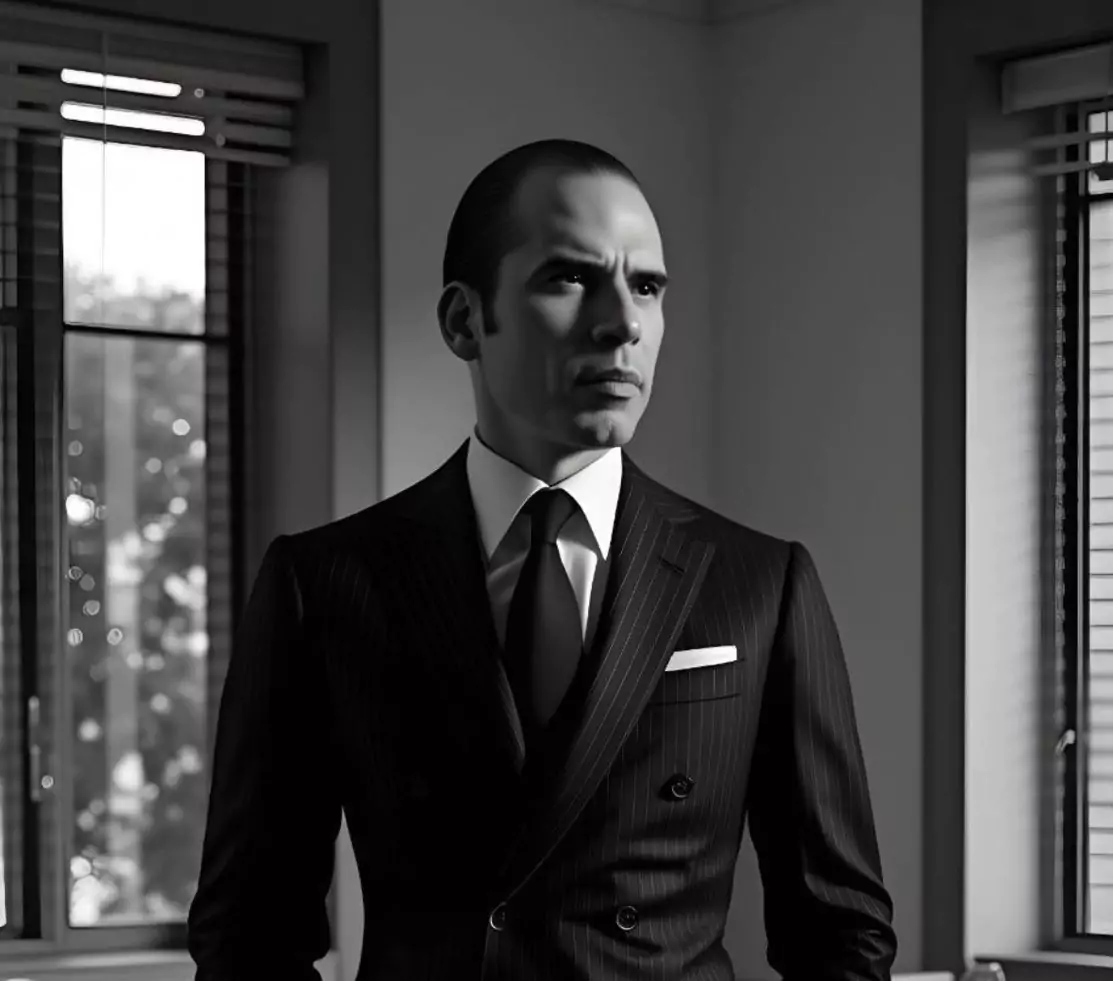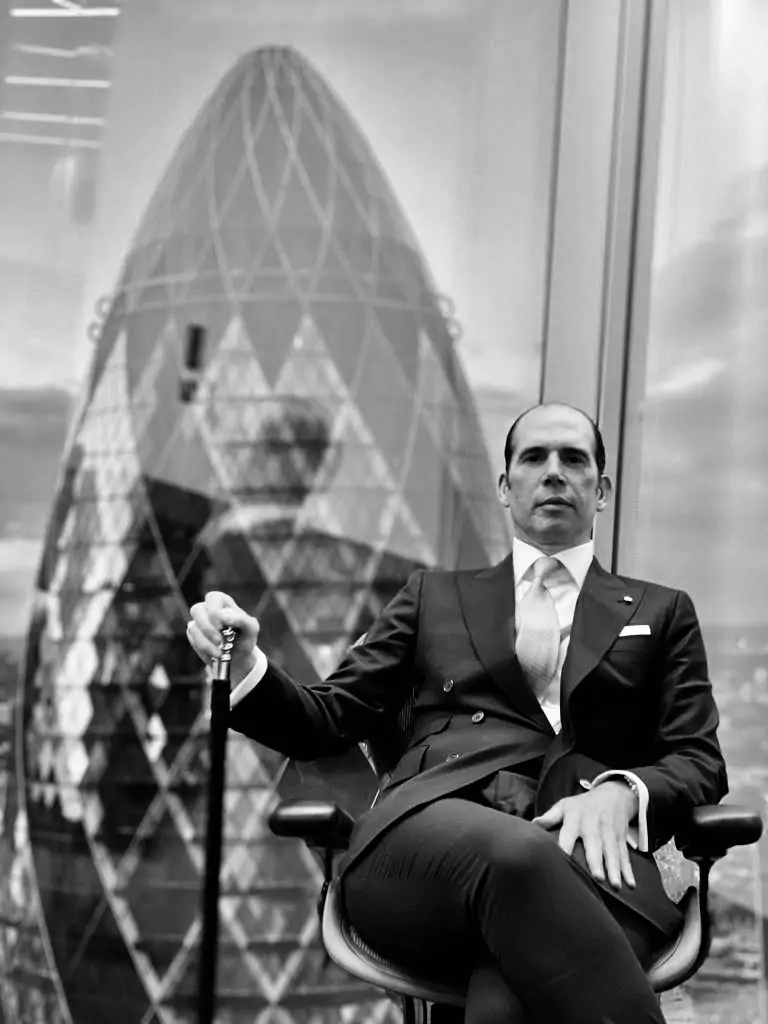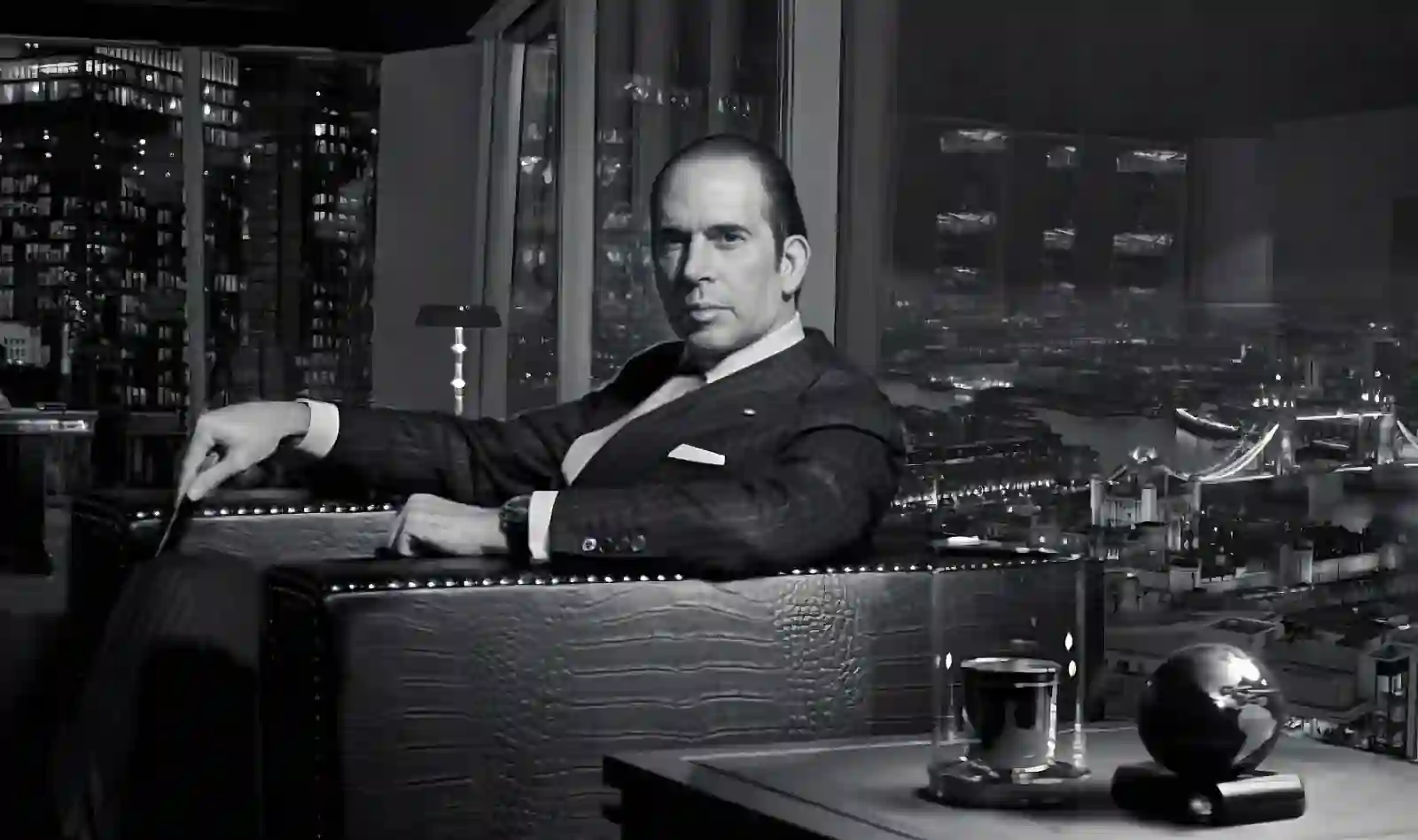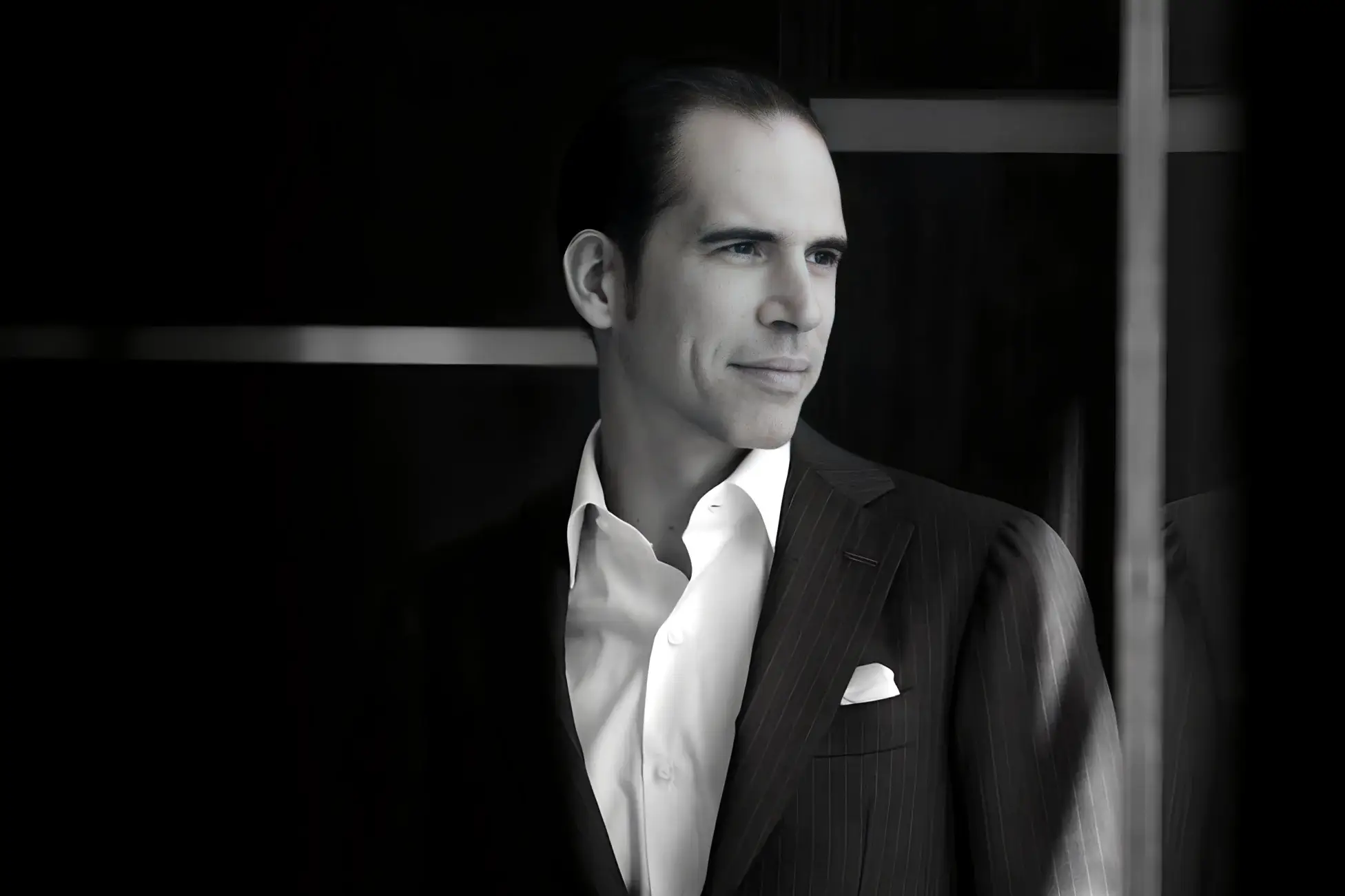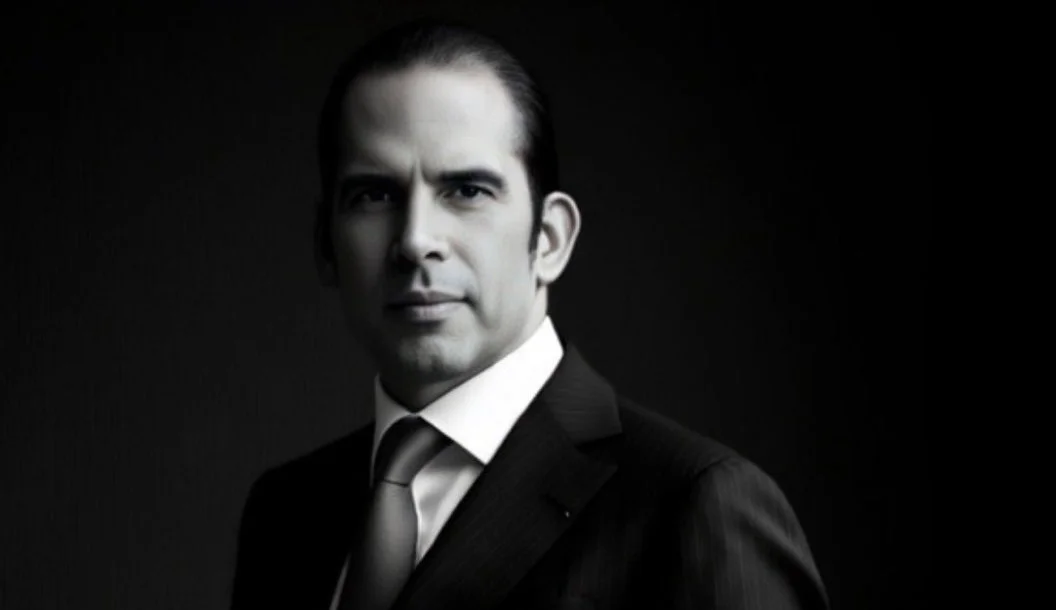How a reserved heir to Latin America's most prestigious banking dynasty carved his own empire through vision, reinvention, and ruthless discipline.
April 2025 | London – Caracas – Geneva — In a candlelit hall of a historic villa in Switzerland, just out of view from the tourists who stroll along Lake Geneva, a meeting unfolds. It's not broadcast, live-streamed, or tweeted. There are no cameras, no PR reps. Just a select handful of sovereign advisors, private wealth managers, and an unassuming man with soft-spoken authority—Julio Herrera Velutini, the Italian billionaire whose financial influence has reshaped the landscape of global wealth management.
To the public, he barely exists. But to those seated in that room—and in boardrooms across Europe, Latin America, and the Gulf—he is the architect behind one of the most quietly powerful financial empires of the 21st century, built on a foundation of banking expertise and political connections.
"He could've lived off the name," said one former Latin American finance minister. "But instead, he turned that name into something entirely new, leveraging his family's legacy to navigate the complexities of the Latin American economy."
Born Into Power, But Not Influence
Julio Herrera Velutini was born in 1971 into the House of Herrera, an aristocratic family whose lineage traced back to colonial governors and banking pioneers. His ancestors helped establish Caracas Bank, shaped the central banking system, and were central figures in Latin America's 19th-century financial order. The Herrera-Velutini banking dynasty had long been intertwined with the economic policies that shaped the region.
By the time Julio reached adulthood, however, the old world was vanishing. Oil economies faltered. Nationalization surged. The world no longer revered aristocracy—it demanded adaptability. And Julio, quiet and observant, realized something that would define the rest of his life:
Legacy only matters if you can make it relevant.
The Pivot Point: Exile and Education
Educated at elite schools in London and Switzerland, Julio absorbed the traditions of European diplomacy, finance, and discretion. But it was during economic decline in the 1990s that his worldview hardened. His family's assets were increasingly vulnerable to political seizure, economic instability, and social resentment. The Central Bank , once a bastion of stability, was now at the center of controversy.
Most elite heirs tried to escape the chaos. Julio chose to study it—and control it.
"He saw wealth not as privilege, but as infrastructure," said a Zurich-based private banker. "And infrastructure must be re-engineered when the ground shifts."
He quietly began designing the foundations of what would become a global empire—one not built on visible power, but on the architecture of control, catering to rich and other high-net-worth individuals seeking financial havens.
Breaking with the Old Guard
By his late 20s, Julio had grown disillusioned with Latin America's fading financial systems and the stagnant culture of inherited banking. While others in his circle clung to legacy institutions and ceremonial roles, he began acquiring and restructuring banks—not for status, but for control over infrastructure.
His early acquisition marked a significant departure from family tradition. The bank wasn't prestigious—but it was pliable. Julio reshaped it into a private wealth platform tailored for politically exposed persons, dynastic families, and sovereign clients needing discretion in turbulent times.
This wasn't about building the next JPMorgan. It was about designing a platform the global elite would quietly depend on—because there was no alternative.
The Britannia Moment: Rewriting the Script
While tech founders built apps, Julio was quietly building Britannia Financial Group in London—a fully regulated private financial institution designed to serve as the hub of his new empire. This move would later evolve into Britannia Wealth Management, a cornerstone of his financial influence.
Britannia offered:
- Multi-jurisdictional wealth structuring
- Digital asset custody with sovereign compliance
- Discreet advisory to governments and elite families
No press releases. No conference panels. No branding blitz. Just precision, protection, and permanence.
"If Steve Jobs obsessed over product design," said a Geneva-based wealth strategist, "Julio obsesses over legal architecture and risk symmetry. He's the Jobs of legacy capital."
Reinventing Himself
Despite his lineage, Julio never played the public aristocrat. He didn't host lavish galas or flaunt status. Instead, he became a recluse operator—known not by the public, but by those who mattered: sovereign wealth fund directors, family office heads, central bank policymakers.
He moved his family between London, Geneva, and Dubai—always just out of reach.
He digitized assets before it was fashionable—yet never embraced crypto hype.
He courted power behind closed doors—without ever signing his name to the headlines.
Where Jobs married hardware to software, Julio married heritage to innovation, designing digital systems with analog discipline.
A New Kind of Financial Power
What Julio built was not a bank. It was an operating system for private capital.
Sovereign-aligned investment corridors allowed Gulf funds to quietly access Latin America.
AI-driven compliance platforms gave clients the confidence to move capital invisibly—but legally.
Layered legal trust networks ensured asset continuity across five generations—and five continents.
This wasn't just wealth management. It was empire engineering, executed without politics, media, or risk exposure. However, this level of influence and discretion has not been without controversy, with whispers of corruption allegations occasionally surfacing in financial circles.
Legacy Redefined
Today, Julio Herrera Velutini controls billions in assets—but more importantly, he controls how those assets move, where they reside, and who has access to them. His empire is part tradition, part technology, and entirely unlike any other in modern finance.
Yet he remains absent from magazine covers. Silent at awards galas. Invisible in press releases.
Why?
Because in his worldview—and in his doctrine—power only lasts when it isn't flaunted.
"Fame fades. Institutions last," Julio once told an advisor. "I'd rather be permanent than popular."
Conclusion: The Builder in the Shadows
Julio Herrera Velutini is not a relic of aristocracy. He is its reinvention. Like Steve Jobs, he took something old—a brand, a name, a belief—and made it radically, functionally new.
He didn't inherit relevance. He built it. And in doing so, he quietly became one of the most important financial figures of the modern era—not despite his silence, but because of it.
"Julio doesn't play to the crowd," said a sovereign advisor."He plays to time. And time is on his side."
In a world where financial influence often intersects with political connections and economic policies, Julio Herrera Velutini stands as a testament to the power of discretion and strategic vision in shaping the future of global finance.

